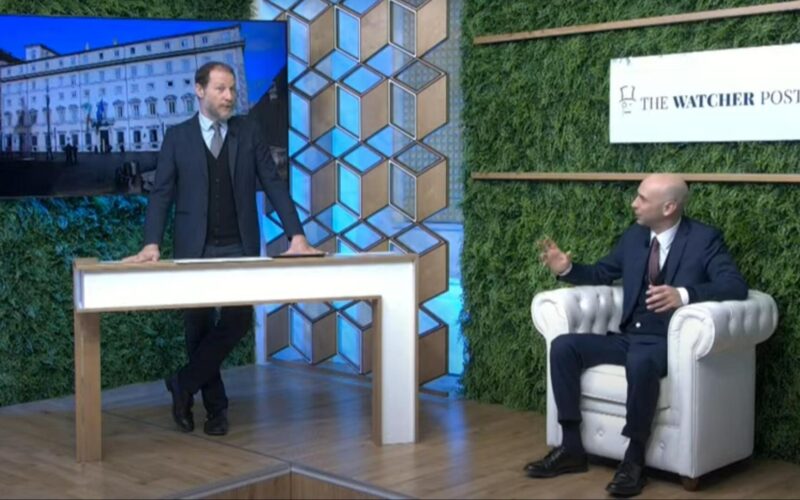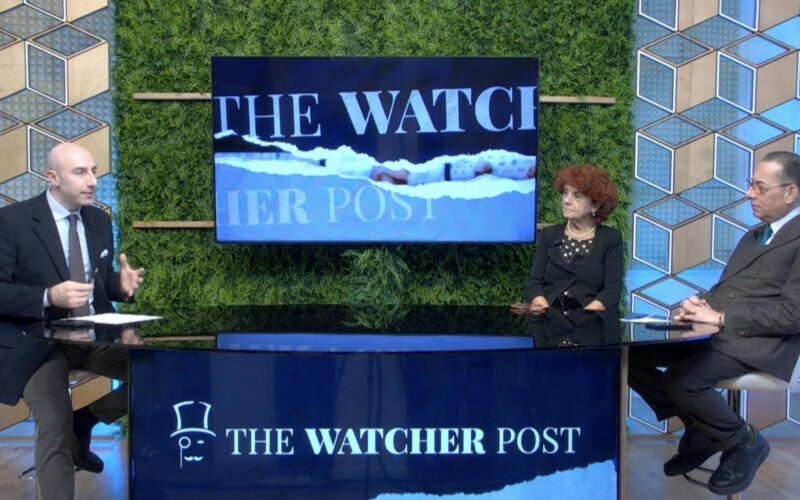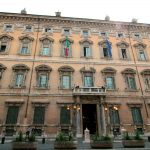Place Lux
Jacques Delors: the death at 98 of ‘Monsieur Europe’, an architect of integration
Di Giampiero Gramaglia
There’s a tale of European integration that predates Jacques Delors becoming President of the European Commission—a narrative marked by progress but also setbacks, crises, and standstills. For instance, the five years from 1979 to 1984, during which the then-European Economic Community (EEC) grappled with the ‘British problem.’ This entailed negotiations on funds to be repaid to Great Britain, as its contribution to the budget was deemed overly burdensome by then-Prime Minister Margaret Thatcher.
Then comes the story of European integration written after Jacques Delors assumed the presidency. At the Fontainebleau Summit in June 1984, an agreement between French President Francois Mitterrand and German Chancellor Helmut Kohl, with Thatcher’s approval, definitively resolved the longstanding ‘British problem.’
Mitterrand expressed that the remnants of the past were cleared from the EEC’s doorstep. The agreement involved a change in Commission leadership: out went the departing Luxembourger Gaston Thorn, and in came Delors, the former French Finance Minister. As one of his successors, Romano Prodi, recalls, Delors would lead a «season of European construction», and Emma Bonino credits him with «awakening European consciousness».
It was a decade, from 1985 to 1995, of rapid progress, considering the slow and convoluted decision-making processes in Europe: completion of the single market, launched at the 1985 Milan Summit at Visconti Castle, and the realization of freedom of movement under the Schengen Agreement; two enlargements, one to guide Spain and Portugal from decades of right-wing dictatorships towards democracy and another to include Sweden, Finland, and Austria—mature democracies with strong economies. Additionally, it involved managing German reunification after the fall of the Berlin Wall, the collapse of communism, and the dissolution of the USSR; the agreement at the Maastricht Summit in December 1991 on the birth of the European Union, accomplished in less than two years by November 1993, and the birth of the euro at the beginning of the 21st century.
A decade, from 1985 to 1995, unlike anything Europe had previously experienced, perhaps only comparable to the 1950s with Robert Schuman‘s declaration, the birth of the ECSC, the failure of the EDC, and the birth of the EEC— and unlike anything it has experienced since. There were geopolitical milestones and a vision allowing for the inception of environmental policies post-Chernobyl and those then termed ‘new technologies,’ even fostering the growth of genuine European citizens through the launch of the Erasmus programme.
The passing of Delors, ‘Monsieur Europe,’ the architect of the current European Union, akin to another Frenchman, Jean Monnet, during the initial phase of European integration, aligns with the departure of another European figure, Wolfgang Schauble, an ‘austerity hawk,’ former German Finance Minister, who passed away at 81. Schauble participated in negotiations leading to German reunification in 1990 and played a pivotal role in managing the post-2008 crisis as Chancellor Angela Merkel’s minister and a staunch advocate of austerity.
Politico writes of the loss of two ‘giants of Europe’ and perhaps, with a touch of irony, notes that ‘political leaders from every corner of the continent rushed to express their condolences and memories of two figures who truly shaped the history of integration, regardless of opinions.’ These leaders daily undermine Delors’ legacy in the name of populism and sovereignty.
‘This is a heavy loss for Germany and Europe,’ said the current President of the Commission, Ursula der Leyen, paying tribute to Schauble, her party colleague, who faced enormous personal challenges after being paralyzed in an assassination attempt but rose to become one of the most powerful and controversial Finance Ministers in EU history. A few hours later, von der Leyen expressed her condolences for Delors’ passing: «a visionary who made ‘Europe stronger’ because he knew how to translate his vision into concrete programs».
For those like me who followed his press conferences for years, one was always struck by the clear, structured presentations, vastly different from today’s leaders’ vague slogans and ideological approximations accompanied by superficial knowledge. Their compass seems to be seeking consensus rather than doing what’s deemed right, aiming to align with what people want to hear (and maybe promise). Delors didn’t concern himself with that: after concluding his European mandate, he always avoided the path that seemed laid out for him—the path towards the French presidency. In ’94, he dashed the left’s hopes by refusing to run for the ’95 presidential elections, despite leading in the polls: a renunciation announced on television before 13 million viewers.
«I have no regrets», said Delors in an interview with Le Point in 2021, which could be considered a sort of political testament. Born in Paris in 1925, a Catholic, Delors served as the Minister of Economy and Finance from 1981 to ’84, at the beginning of President Mitterrand’s term, the first socialist at the Élysée in the post-war era.
In Brussels, he led the Commission from 1985 to 1995 for three consecutive terms (a unique case to date). Inspired by trade unionism infused with social Catholicism of the ’50s and ’60s, his activities led him to join the Socialist Party. Delors, founder of the discussion group and magazine Citoyens 60, collaborated with far-left magazines, transitioning intellectually fromt Premier Jacques Chaban-Delmas’s social Gaullism to Mitterrand’s socialism. «I am a social democrat», he said, encapsulating his thoughts in a single statement.
Married in 1948 to Marie Lephaille, who shared his trade union and religious beliefs and who passed away in 2020, Delors had two children: Martine Aubry in 1950 and Jean-Paul in 1953, who succumbed to leukemia in 1982. Announcing her father’s passing was his daughter, the socialist Mayor of Lille, specifying that he passed away «in his home in Paris, in his sleep».
In March 2020, Delors came to the fore again, urging EU heads of state and government to show greater global solidarity, a crucial moment for the 27, seeking a common response to the social and economic impact of the Covid pandemic. Delors’ stimulus resonated in the joint sharing of debt to fund the Next Generation EU.
Through his think tanks, ‘Club Testimone,’ and later ‘Notre Europe’ (now the ‘Jacques Delors Institute’ with Enrico Letta as president), he aimed to support and strengthen European federalism, urging leaders to show more «audacity» in the face of Brexit and populist attacks.
French President Emmanuel Macron remembered him as the «statesman of France’s destiny, an ‘inexhaustible craftsman of our Europe». President Sergio Mattarella recalled «the model of a sensitive and supportive europeanism». Foreign Minister Antonio Tajani said, «We lose a personality who, based on Christian values, marked the path of strengthening Europe.» Enrico Letta wrote: «Modern Europe loses its founding father… We mourn his passing, we salute his strength and moral authority, and we will carry forward his ideas with even greater commitment».








